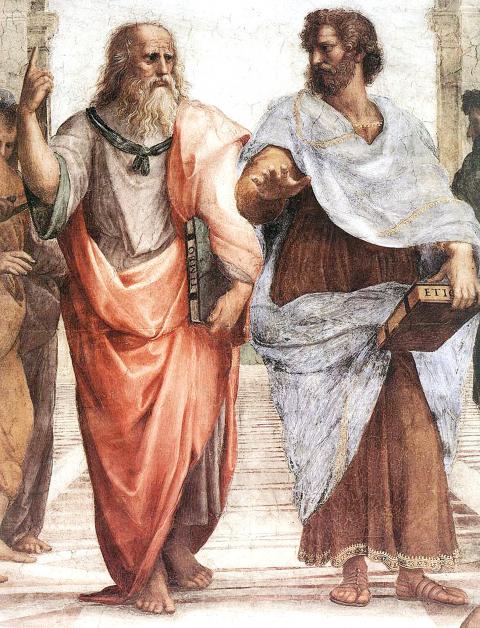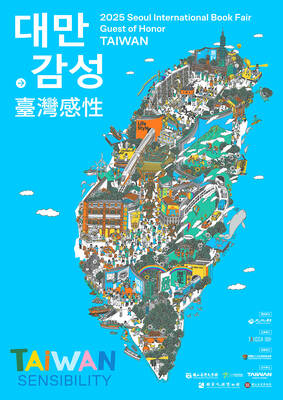Chinese practice
集思廣益
(ji2 si1 guang3 yi4)

Photo: Wikimedia Commons
照片:維基共享資源
collecting opinions is of wide benefit
諸葛亮(西元一八一~二三四年)是三國時期蜀國的軍師與丞相。《三國志.卷三九.蜀書》記載,諸葛亮向屬下官員提供了建議,他說:「當你參與政事時,把許多人的智慧結合起來是很重要的,吸收各種意見對你來說會很有幫助。」他繼續說,若因為怕得罪人而避免提出不同的意見,會讓人更難做事。
諸葛亮用「集眾思廣忠益也」來表示收集許多人的不同意見是有助益的。成語「集思廣益」便是由此而來,其字面意思是「收集意見是很有助益的」,或「由廣泛的建議中獲益」。
一個意義類似的英文諺語是「two heads are better than one」(兩個頭比一個頭好),其中「two」意指「多於一個」。我們已知這說法在十六世紀中期之前已在使用了,因為它被收錄在英格蘭作家約翰‧海伍德(約西元一四九七~一五八○年)的《英文諺語全集》中。海伍德寫道:
Some heades haue taken two headis better then one:
But ten heads without wit, I wene as good none.
海伍德此言說明集結眾人的點子雖是件好事,但如果這些人不是特別聰明(「without wit」),結合眾多人(例如此處所說的十人)的意見卻沒有好處。
英國小說家和學者C.S.路易斯(西元一八九八~一九六三年)為這一概念增添了歷史的面向。他寫道:「Two heads are better than one, not because either is infallible, but because they are unlikely to go wrong in the same direction.」(兩個頭比一個頭好,不是因為其中一人絕對可靠,而是因為他們不太可能都錯誤地朝同一方向前進。)他藉此建議人們不僅應徵詢眾人的意見,也要參酌不同時代的人的意見。他暗示我們應廣泛閱讀,現代及古代的著作都不應偏廢。但他的意思不是說過去的人就不會犯錯,而是說他們不會跟我們犯一樣的錯誤,而且將現今既定的成見與過去比較,本身就很有益處。 (台北時報編譯林俐凱譯)
告訴我你的問題在哪,讓我們集思廣益一起想辦法,總比你一個人埋頭苦幹要有效率得多。
(Tell me what your problem is, and we’ll put our heads together. After all, two heads are better than one.)
社群網站上的討論讓網友集思廣益,雖然有不理性的謾罵,但也有人提出不少建言。
(Social media discussions mean you can share opinions with others. Despite the abuse you have to put up, many people offer constructive ideas.)
英文練習
two heads are better than one
Zhuge Liang (181–234), was an accomplished military strategist and prime minister of the state of Shu Han during the Three Kingdoms period. In an excerpt from Chapter 39 of the Book of Shu in the Records of the Three Kingdoms, Zhuge gives advice to some of the officials under him. He says, “When you are governing, it is important to combine the collective wisdom of many, and to absorb a diverse array of opinions that will be of help to you.” He goes on to say that if one avoids offering different opinions for fear of offending people, it will make it much more difficult for one to carry out one’s duties.
In the text, the phrase he uses to say it is beneficial to collect diverse opinions from many people is 集眾思廣忠益也. From this, we get the idiom 集思廣益, literally “collecting opinions is of wide benefit,” or “to profit from widespread suggestions.”
A comparable English proverb is “two heads are better than one,” in which “two” is to be understood as “more than one.” We know that it was in use prior to the mid-16th century because it is recorded in a collection of English proverbs — A dialogue conteinyng the nomber in effect of all the prouerbes in the Englishe tongue — by the English writer John Heywood’s (c. 1497 – c. 1580). Heywood writes:
Some heades haue taken two headis better then one:
But ten heads without wit, I wene as good none.
His verse qualifies the idea by saying that, although the combined ideas of more than one person is desirable, the collected opinions of a large number (10) is no good if those people are not particularly wise (“without wit”).
The British novelist and academic C. S. Lewis (1898 – 1963) added a historical aspect to the concept. He wrote, “Two heads are better than one, not because either is infallible, but because they are unlikely to go wrong in the same direction.” By this, he was advising people not merely to seek the opinions of the many, but the opinions of the people from diverse eras. He was suggesting we read extensively, but intersperse our reading of modern books with old books. He was not saying people of the past did not make mistakes: He was saying they did not make the same mistakes, and comparing past and present preconceptions was, in itself, informative.
(Paul Cooper, Taipei Times)
I think we should brainstorm the problem. If we put our heads together we can hopefully come up with the optimal solution.
(我們來一起腦力激盪,這樣應該就可想出最理想的解決方式。)
They say two heads are better than one. I think it depends on the heads.
(雖說團隊合作比一個人單打獨鬥好,但也要看那是什麼樣的隊友。)

The 2025 Seoul International Book Fair was held from June 18 to 22 at the COEX Convention & Exhibition Center in Seoul, South Korea. This year, participants from 17 countries attended, with over 530 publishing houses and related organizations taking part. For the first time, Taiwan participated in the book fair as the Guest of Honor, bringing together more than 85 publishers and presenting a curated selection of 550 titles. A delegation of 23 Taiwanese creatives traveled to Seoul to attend the event, including 13 literary authors, six illustrators, and four comic book artists, among which were a film director, an

The new generation born between 2025 and 2039 has been officially named “Generation Beta,” or simply “Gen Beta.” This generation will be the first to experience a world where artificial intelligence (AI) plays a key role in daily life. Generations are defined by shared cultural, social and historical experiences within a specific time frame. These experiences, often influenced by significant events and technological advancements, shape the values, attitudes and behaviors of each generation. The concept of generations helps us understand how different age groups interact with their environment and contribute to societal changes over time. The previous generational transition from Gen

In late 2024, the suicide of acclaimed Taiwanese author Chiung Yao at 86 sparked a societal debate. She expressed her desire to avoid the difficult aging process and sought to govern her own death rather than leave it to fate. Her statements propelled the issue of “euthanasia” back into the public arena, posing the question of whether Taiwan should legalize euthanasia to grant patients and the elderly the right to die with dignity. Euthanasia, the intentional ending of a life to relieve suffering, is legal for humans in countries like the Netherlands and Belgium but remains prohibited in Taiwan.

Continued from yesterday(延續自昨日) https://www.taipeitimes.com/News/lang As Gen Beta grows, they are expected to witness advanced technologies becoming fully integrated into various fields like education, workplaces, healthcare and entertainment. In addition to technological developments, they will also face big challenges like severe climate change. Influenced by their Gen Y or Gen Z parents, who view climate change as a critical issue for the future and prioritize sustainability, they are likely to focus more on global issues and seek innovative solutions to address them. Moreover, Gen Beta will experience considerable demographic changes, such as lower birth rates and longer lifespans. Consequently, Gen Beta is predicted to